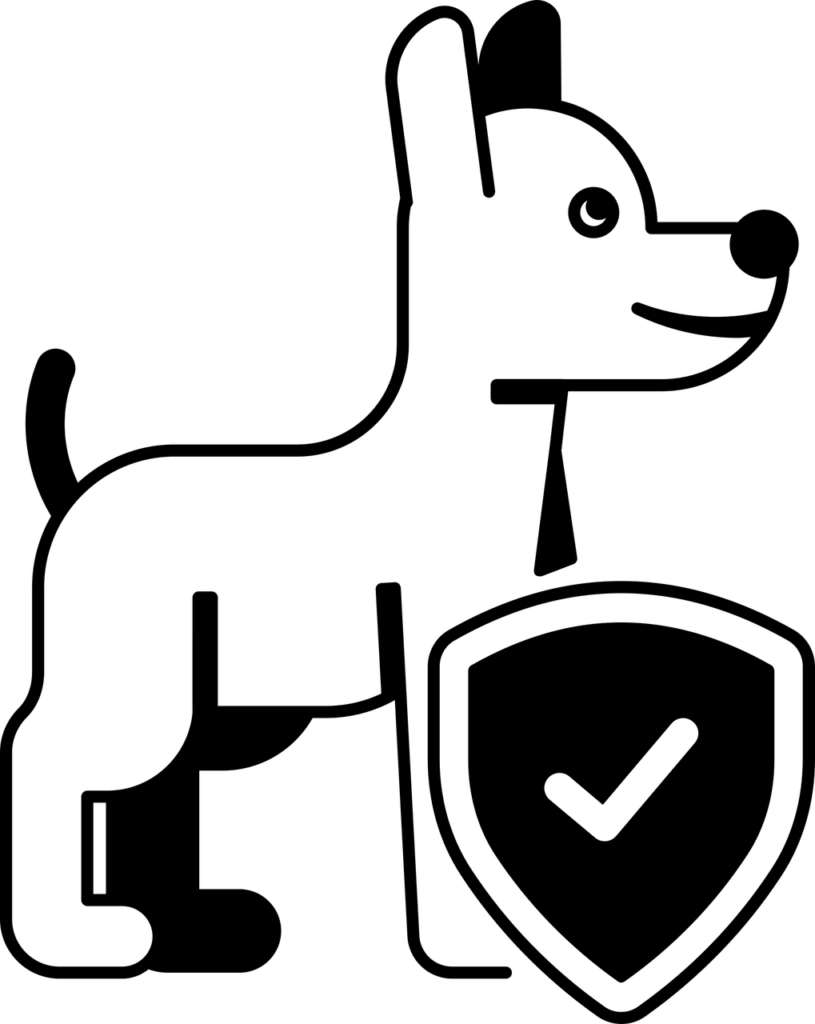
Welcome to “The Ultimate Guide to Regular Vet Checkups for Your Dog: Ensuring Optimal Canine Health!” In this comprehensive guide, you’ll discover the essential steps to maintain the health and well-being of your furry friend. From understanding the importance of routine veterinary visits to exploring the best natural dog remedies and canine wellness supplements, this article provides a wealth of knowledge to support your dog’s overall health. Learn about the different health concerns specific to various breeds, the importance of dental health, and the benefits of a balanced diet rich in essential nutrients and fatty acids. Additionally, we’ll guide you through the best practices for joint health, skin and coat maintenance, and oral health, ensuring your dog lives a happy, healthy life at every stage. Whether you have a young pup, an active adult, or a beloved senior dog, regular checkups and proper supplementation can make all the difference in supporting their optimal health. Have you ever wondered how often you should take your dog to the vet for regular checkups? Many dog owners find themselves unsure about the frequency and importance of veterinary visits. In “The Ultimate Guide to Regular Vet Checkups for Your Dog: Ensuring Optimal Canine Health,” we’ll guide you through everything you need to know to keep your furry friend in peak condition.

Why Regular Vet Checkups Matter
Regular veterinary visits are crucial for maintaining your dog’s health and well-being. These checkups allow veterinarians to monitor your dog’s health, catch potential issues early, and provide you with the best advice on caring for your pet.
Early Detection of Health Issues
One of the main benefits of routine vet checkups is the early detection of health problems. By identifying issues early, treatment can be more effective and less invasive. This proactive approach can often save you money and prevent unnecessary suffering for your dog.
Comprehensive Care
A vet visit provides a comprehensive overview of your dog’s health, including teeth, skin, coat, weight, and overall physical condition. This holistic approach ensures that nothing is overlooked and that your dog receives the most complete care possible.
Tailored Advice
During vet checkups, you receive tailored advice specific to your dog’s breed, age, lifestyle, and health needs. Whether it’s recommendations for diet, exercise, or preventive care, these personalized suggestions help you make informed decisions about your dog’s health.
How Often Should You Visit the Vet?
The frequency of vet visits can vary depending on your dog’s age, health, and specific needs. Here’s a basic guide:
| Life Stage | Frequency of Vet Visits |
|---|---|
| Puppies | Every 3-4 weeks (until they are about 16 weeks old) |
| Adult Dogs | Annually |
| Senior Dogs | Every 6 months |
Puppies
Puppies require frequent vet visits to monitor their growth and development and to complete their vaccination schedules. These visits help ensure your puppy gets the best start in life.
Adult Dogs
For healthy adult dogs, annual vet visits are typically sufficient. However, if your dog has specific health concerns or a chronic condition, more frequent visits may be necessary.
Senior Dogs
As dogs age, bi-annual vet visits become more critical. Older dogs are more susceptible to health issues such as arthritis, dental problems, and heart disease. Regular checkups help manage these conditions and maintain quality of life.
What Happens During a Routine Checkup?
Understanding what to expect during a vet visit can help you and your dog feel more comfortable.
Physical Examination
Your vet will perform a comprehensive physical exam, checking your dog’s ears, eyes, mouth, skin, coat, and overall body condition. This examination helps identify any visible abnormalities or signs of illness.
Weight and Vital Signs
Tracking your dog’s weight and monitoring vital signs such as heart rate and temperature provide insight into their overall health. Significant changes in weight or vitals can indicate underlying health issues.
Parasite Control
Regular vet checkups include screenings for parasites like fleas, ticks, and worms. Your vet can provide preventive treatments to keep these pesky invaders at bay.
Vaccinations and Boosters
Ensuring your dog is up-to-date on vaccinations is critical for preventing potentially serious diseases. During your visit, your vet will review your dog’s vaccination record and administer any necessary boosters.
Dental Health
Oral health is vital for your dog’s overall well-being. Vets will examine your dog’s teeth and gums, offering recommendations for dental care and scheduling professional cleanings if needed.
Diagnostic Tests
Depending on your dog’s age and health, your vet may recommend routine blood work, urinalysis, or other diagnostic tests. These tests can reveal hidden health issues, allowing for early intervention.
Supporting Your Dog’s Health Between Visits
Regular vet visits are essential, but so is maintaining your dog’s health between these appointments. Here are some key areas to focus on:
Nutrition and Diet
Feeding your dog a balanced, high-quality diet tailored to their specific needs is fundamental to their health. Consult with your vet to determine the best diet for your dog’s breed, age, and health status.
Supplements
Supplements can support various aspects of your dog’s health, from joint mobility to skin and coat health. Popular supplements include:
| Type of Supplement | Benefits |
|---|---|
| Omega-3 Fatty Acids | Supports skin and coat health, reduces inflammation |
| Glucosamine and Chondroitin | Promotes joint health and mobility |
| Probiotics | Aids in digestion and supports a healthy gut |
| Multivitamins | Ensures your dog gets all essential nutrients |
Exercise and Mental Stimulation
Regular physical activity and mental stimulation are crucial for your dog’s physical and emotional well-being. Activities such as walking, playtime, and training sessions keep your dog fit and happy.
Grooming and Dental Care
Regular grooming helps maintain your dog’s skin and coat health. Likewise, brushing your dog’s teeth and providing dental chews can prevent oral health issues.

Recognizing Signs of Health Concerns
Being attuned to your dog’s behavior and health can help you catch potential problems early. Here are common signs to watch for:
Changes in Appetite or Weight
A sudden change in appetite or unexplained weight loss/gain should prompt a visit to the vet.
Lethargy or Decreased Activity
If your dog is unusually lethargic or shows a significant drop in activity level, it might indicate an underlying health issue.
Changes in Bowel Movements
Diarrhea, constipation, or changes in bowel habits should not be ignored.
Skin and Coat Issues
Persistent itching, redness, unusual lumps, or changes in coat texture are signs that your dog needs a veterinary evaluation.
Behavioral Changes
Irritability, aggression, or withdrawal can signal discomfort or health problems.
Special Considerations for Senior Dogs
Senior dogs have unique needs that require special attention. Regular vet visits help address these needs and ensure your older dog remains comfortable and healthy.
Joint and Mobility Support
As dogs age, their joints can become stiff and painful. Supplements like glucosamine and chondroitin, along with regular exercise, can help maintain joint health.
Regular Health Screenings
More frequent health screenings help detect age-related issues early. These may include blood tests, urine analysis, and imaging studies to monitor organ function and detect diseases like cancer or heart disease.
Diet Adjustments
Older dogs may benefit from a diet formulated for senior dogs, which often contains fewer calories and lower fat to help maintain a healthy weight, as well as added nutrients that support joint, heart, and kidney health.

The Role of Vaccinations
Vaccinations play a critical role in preventing infectious diseases and maintaining public health. Here’s a closer look:
Core Vaccines
These are essential for all dogs and protect against serious diseases:
| Vaccine | Protects Against |
|---|---|
| Rabies | Rabies virus, fatal and can spread to humans |
| Distemper | Affects respiratory, gastrointestinal, and nervous systems |
| Parvovirus | Highly contagious virus causing severe diarrhea and vomiting |
| Adenovirus (Hepatitis) | Infects liver and other organs |
Non-Core Vaccines
These are recommended based on your dog’s lifestyle, environment, and specific health needs:
| Vaccine | Protects Against |
|---|---|
| Bordetella (Kennel Cough) | Infectious respiratory disease |
| Lyme Disease | Tick-borne illness |
| Leptospirosis | Bacterial infection affecting kidneys and liver |
| Canine Influenza | Contagious respiratory infection |
Consult your vet to determine which vaccines are necessary for your dog’s health and circumstances.
Natural and Organic Health Products
Many dog owners are turning to natural and organic health products to support their pet’s well-being. These products offer a holistic approach to health care and may include:
Natural Remedies
Products like herbal remedies and essential oils can support health naturally. However, always consult your vet before using these to ensure they are safe and appropriate for your dog.
Organic Dog Food
Organic dog food, free from synthetic additives and chemicals, provides a high-quality diet that may benefit your dog’s overall health.
Health Supplements
Opt for supplements made from natural ingredients to support your dog’s health without relying on synthetic compounds.
Understanding the Role of Probiotics
Probiotics are beneficial bacteria that support a healthy gut. They can be particularly helpful for dogs with digestive issues, enhancing nutrient absorption and boosting overall health.
Benefits of Probiotics
- Improved Digestion: Helps break down food more efficiently.
- Enhanced Immune Function: Supports the immune system by maintaining a healthy gut flora.
- Balanced Gut Microflora: Prevents the overgrowth of harmful bacteria.
Including a probiotic supplement in your dog’s diet can help maintain their digestive health and overall well-being.
The Importance of Dental Health
Oral health is often overlooked but is vital to your dog’s well-being. Dental problems can lead to more severe health issues if left untreated.
Preventive Dental Care
Regular brushing and providing dental chews can help prevent plaque and tartar buildup. Your vet can also recommend appropriate products and techniques.
Professional Dental Cleanings
Your vet may suggest professional cleanings under anesthesia to remove tartar and address more serious dental issues.
Signs of Dental Problems
Look out for bad breath, difficulty eating, and red or swollen gums. Prompt veterinary attention can prevent these issues from escalating.
Choosing the Best Dog Health Products
Selecting the right health products ensures your dog gets the best possible care. Here are some tips:
Check for Quality
Look for products with the NASC (National Animal Supplement Council) quality seal, ensuring they meet high standards of quality and safety.
Read the Ingredients
Opt for products with high-quality, natural ingredients. Avoid those with artificial additives, fillers, and low-quality proteins or fats.
Consult Your Vet
Always discuss new supplements or health products with your vet to ensure they are appropriate for your dog’s specific needs.
Conclusion
Ensuring your dog’s optimal health requires regular vet checkups, a balanced diet, regular exercise, and the right supplements and health care products. By staying proactive and informed, you can help your dog lead a long, healthy, and happy life.
Remember, your vet is your best resource for advice and guidance on maintaining your dog’s health. Don’t hesitate to schedule regular checkups and reach out with any concerns. Your dog’s well-being is worth every effort!







